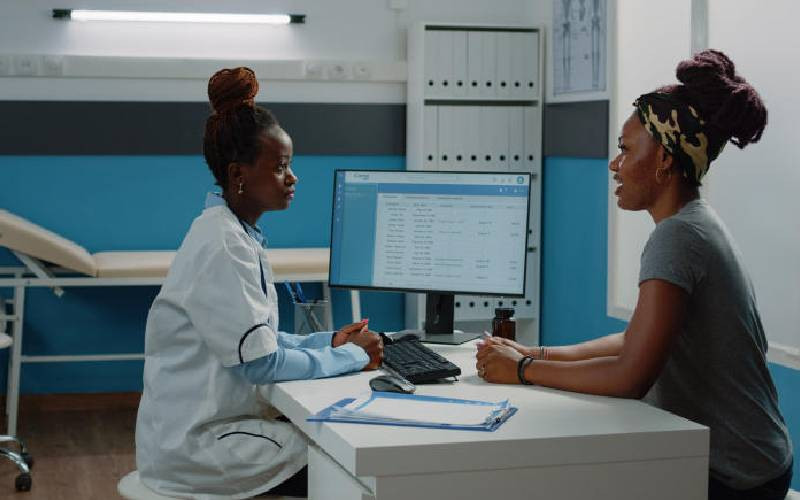This week, a close friend lost his mother to cancer. Just last month a good friend returned to the country after nine months of intensive and intrusive cancer treatment, which almost destroyed him. I know at least four female friends who have recently undergone mastectomy to deal with breast cancer. These incidents have brought home the reality of the devastating disease that cancer has become.
That, and October being breast cancer month gave impetus to today’s piece. For Kenyans who have not interacted with the cancer monster, this month will most probably pass you without a thought on the shattering impact that a painless lump on the breast, or on some other part of the body can have on one’s entire life trajectory. For the uninformed, cancer refers to a group of diseases involving abnormal cell growth in one part of the body which tend to spread to other parts of the body.
The most common symptom of cancer is a painless lump though sometimes abnormal bleeding, a prolonged cough or even a significant change in bowel movements may signify the presence of the disease. Naturally, these symptoms do not always indicate the presence of cancer and only medical examination can determine the presence of cancerous cells.
From my interactions with persons battling the disease it is clear that cancer is at its most dangerous when discovered late. Cancer grows in stages and becomes increasingly difficult to treat at later stages.
In what is commonly known as Stage Zero, the cancer cells are dormant in the tissue where they developed and have not moved to other tissue. At this stage the cancer is generally curable by fairly simple interventions. By the time the cancer moves to Stage Four, also referred to as metastatic cancer, it has not only grown in size in the original tissue where it occurred but has also spread to other parts and organs.
The most scary part about cancer is that depending on how it exhibits its symptoms, it can grow to very late stages without discovery since it tends to be painless. Many people who notice an abnormal swelling tend to ignore it or wish it away. Unfortunately, the failure to diagnose and therefore treat it early makes it almost impossible to cure and increases the side effects of any chosen treatment. While it is recognised that some cancers are genetic and due to factors external to the patient, it is generally agreed that most cancers are lifestyle diseases, impacted primarily by our diets, and our lifestyles.
The increase in consumption of rich and processed foods, the consumption of alcohol and smoking, including secondary smoke have a direct impact on susceptibility to cancer.
It is time we invested in consistent campaigns for more responsible diets, especially for the young people and the upwardly mobile, for they are the greatest consumers of harmful products. Our sedentary lifestyles where we engage in minimal or no exercise is now recognised as a major contributor to cancer particularly among younger people.
A basic change in our lifestyles could therefore grossly reduce susceptibility to cancer. A change to less red meat, more fruits and vegetables and more of our traditional foods will make a world of difference.
Add to that some reasonable exercise, just a brisk walk for half an hour three or four times a week. For all of us, regular checkups are an absolute necessity. Any person above the age of 40 must try and get a check every other year just to ensure that any danger signs are discovered and dealt with early enough.
National and County governments must invest more in medical examination technology that enables cases to be discovered sufficiently early even amongst those that may not afford private medicare.
I wish to laud those like the Beth Mugo Foundation and the Twa Trust started by cancer survivors, Beth Mugo and Doris Mayoli, as they play a tremendous role in providing much needed care to those affected by the cancer tragedy but don’t have financial means for effective intervention.
The human cost of cancer to affected families and the economic cost to our nation is incalculable. We must do all we can to overcome.
 The Standard Group Plc is a
multi-media organization with investments in media platforms spanning newspaper
print operations, television, radio broadcasting, digital and online services. The
Standard Group is recognized as a leading multi-media house in Kenya with a key
influence in matters of national and international interest.
The Standard Group Plc is a
multi-media organization with investments in media platforms spanning newspaper
print operations, television, radio broadcasting, digital and online services. The
Standard Group is recognized as a leading multi-media house in Kenya with a key
influence in matters of national and international interest.
 The Standard Group Plc is a
multi-media organization with investments in media platforms spanning newspaper
print operations, television, radio broadcasting, digital and online services. The
Standard Group is recognized as a leading multi-media house in Kenya with a key
influence in matters of national and international interest.
The Standard Group Plc is a
multi-media organization with investments in media platforms spanning newspaper
print operations, television, radio broadcasting, digital and online services. The
Standard Group is recognized as a leading multi-media house in Kenya with a key
influence in matters of national and international interest.









